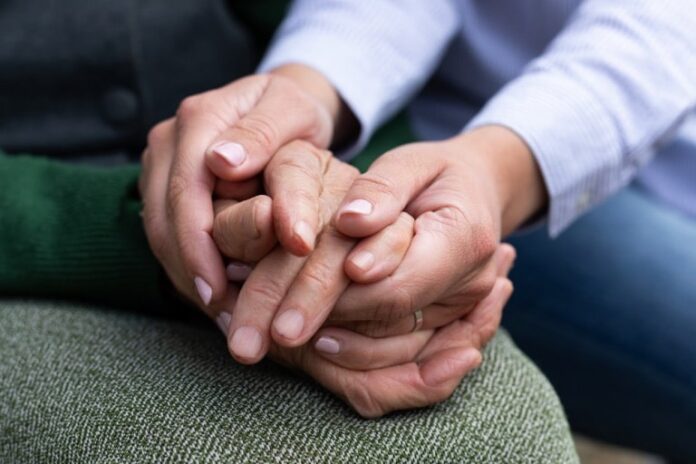It’s never easy when a friend or loved one is dealing with abuse. Your loved one may not even realize that they are being abused, leaving friends and family feeling lost and helpless. You aren’t defenseless, though. When someone knows they have support on the sidelines before, during, and after hardships, their outcome looks brighter.
You can be the difference between successfully escaping abuse and succumbing to it. If you’re not sure how to help your loved one survive or deal with the aftermath of abuse, you’ll need to know about the power of leaving a positive impact.
Provide Support
Being supportive is the most essential part of helping a loved one through trauma. Don’t be overly negative or absent from their life. Lend an ear and a shoulder to cry on. If they have a question, answer it to the best of your ability without judgment. If they need resources, do your best to provide them.
Sometimes, support is just keeping a conversation alive. If you’re a constant blaming or negative source in their life, they won’t trust or turn to you when needed. They likely already know how toxic their abuse is; if they don’t, constantly reminding them will only create distance. Be there for them.
Be Physically and Emotionally Present
If you’re constantly unavailable, you won’t be able to help your loved one. Tell them your work schedule and when you’re available to spend time together or have a conversation. You may need to work around their abuser’s schedule if they are currently being abused.
Make sure you’re on call when they need you emotionally and physically. Pay attention to their life in times of hardship and happiness. If you’re reliable, they’re more likely to gather the strength to leave an abuser or move on from abuse.
Don’t Assign Blame
Abuse survivors need to be reminded that the abuse isn’t and never was their fault. Only the abuser is to blame for their actions. Don’t tell your loved one that they could have behaved, acted, or dressed differently to avoid abuse. Abusers are more successful when the survivor blames themselves.
If you add to this blame, you give the abuser more power and weight to their words. Don’t ignore the abuse, but don’t blame the survivor, either. Give positive support and open arms. Don’t force them or make them feel guilty if they’re not ready to leave—this can isolate them further.
Keep in Contact
It’s difficult to stay in contact with loved ones when lives are busy. However, even average absences can feel lengthy if someone is experiencing an emotional crisis. Consider sending a quick text message or phone call occasionally, and try to keep in contact. If your loved one is currently living with or staying with an abuser, they will likely be isolated from healthy support. Stay stubborn—make sure they always know you’re there for them.
No Ultimatums or Giving Up
It may seem like an easy solution to provide an ultimatum for your loved one to leave their abuser. Saying things like, ‘This is the last time I’m bailing you out,’ or ‘If you go back to them, I’m done with our friendship’ will do much more harm than good. It is frustrating to see your loved one continue to turn to an abuser after all the evidence of their bad behavior.
However, your loved one is likely consistently bombed with affection and manipulation whenever they even come close to leaving. There is a reason abusers are so successful at keeping their prey for so long. Don’t give up on your loved one. Make sure they know you’re always there if they need you or change their mind.
Provide Professional Resources
While physical and emotional support goes a long way, you probably aren’t a therapist, attorney, or law enforcement. Even if you are, it may present a conflict of interest. Your loved one may not have the time to find resources like therapists, support groups, attorneys, or housing. They may not even believe they need these resources; that’s where you come in.
Research local mental health professionals who specialize in abuse; read reviews and evaluate credentials to determine if they may be a good fit. Use the same practices to find an abuse lawyer who can represent your loved one in a criminal or civil case if necessary. Find local abuse support groups, food banks, shelters, and more that your loved one can rely on if necessary. You don’t have to meet with these professionals yet; just have a list ready if the time comes. Don’t force them on your loved one if they aren’t ready.
Offer Shelter or Transportation
Sometimes, it’s difficult to leave or move on from an abuser due to someone’s life circumstances. They may not have money, housing, or transportation to live a more independent life—this is likely done on purpose by the abuser in many cases.
Let your loved one know that you can help them find shelter, transportation, or other means of independence if they leave the abuser. Let them know they aren’t alone. Even if you don’t have room for them in your living space, you can help them find their own independence and shelter.
Take Care of Yourself
It can be tiring and sad to manage your loved one’s crises on a day-to-day basis. Make sure you take time for yourself and ensure your needs are met. You can find support groups and therapists that can help you manage tough emotions and balance your life along with your loved ones. You’re important too.
